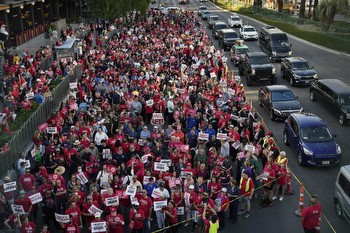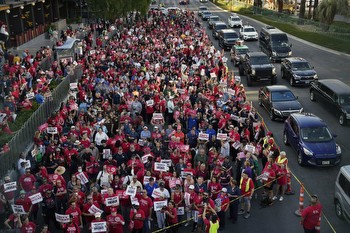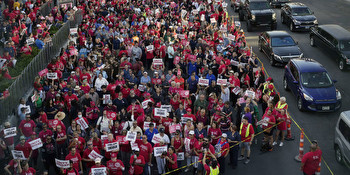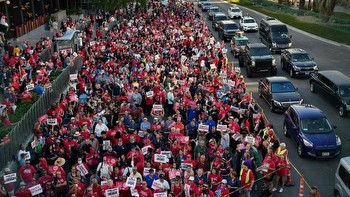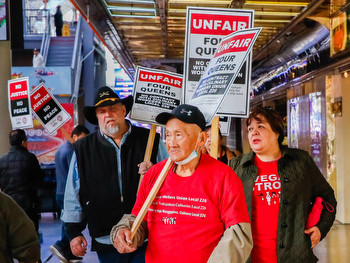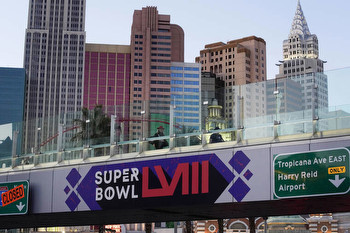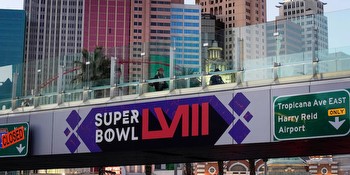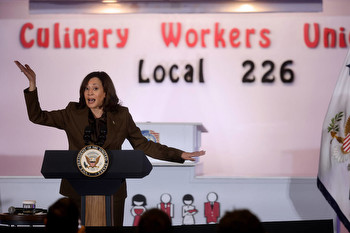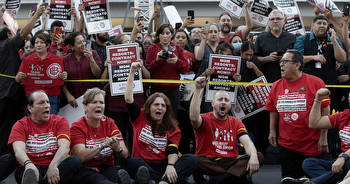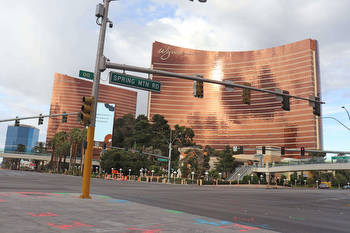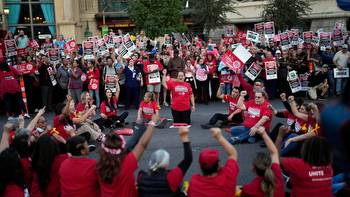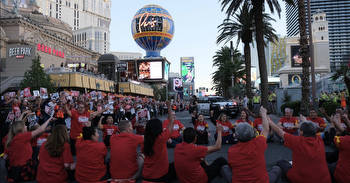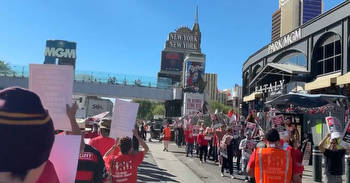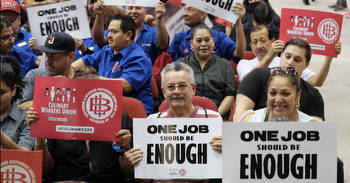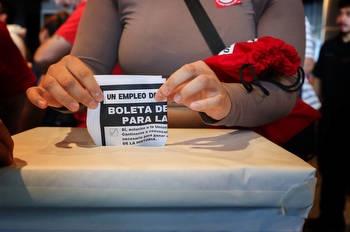Union in negotiations with downtown, independent Strip casinos
Culinary Local 226 officials say they are still negotiating with 21 Las Vegas-area hotel-casinos for a new five-year contract for more than 7,000 workers.
Hospitality workers at 21 downtown Las Vegas and independent Strip hotel-casinos, plus two more in Northern Nevada, are working without a contract, which expired on June 1, according to the union. There are roughly 7,700 members at those 23 properties. Officials say they could call a strike deadline this month or in February.
“We think we’re going to have strikes, it’s unfortunate,” Secretary-Treasurer Ted Pappageorge said, speaking after Vice President Kamala Harris on Wednesday visited Culinary headquarters in Las Vegas. “If we do, it would actually mean more locations under strike than the three big employers.”
Members ratified a deal with MGM Resorts International, Caesars Entertainment and Wynn Resorts in November. The union threatened to strike several days before the Formula One race, putting pressure on operators to finalize the contract agreement. Pappageorge said that union negotiators meet with employers weekly or daily to work on their respective agreements but not enough progress has been made.
Some of the Southern Nevada hotel-casinos working without a contract include Rio, The Strat, Sahara, Circus Circus, Treasure Island, Westgate, Binion’s, Circa, Plaza, Golden Gate, The D and Four Queens.
Boyd Gaming, which operates three Fremont Street-area properties, declined to comment on the discussions. Several other operators did not respond to a request for comment.
The union has reached contract agreements with The Mirage, Tropicana, Four Seasons and Palms.
Culinary officials have called the new contracts historic for their significant wage increases, guaranteed lowered workloads, technology protections and career support. Each full-time, non-tipped employee at those companies will get roughly $3-an-hour raise in the first year, and tipped workers will get a raise of roughly $1.50 hourly, leaders previously said.
About 70 percent of the union’s membership — made up of housekeepers, porters, bellmen, servers, bartenders, and kitchen and laundry workers — are considered non-tipped employees.
Pappageorge said wage and benefits are behind the lengthy talks, but other discussion points remain around daily room cleaning, protections from job-replacing technology and workload reductions.
“There’s a lot of work to do to make sure that we corral these companies and get them to the finish line,” he said. “It’s a little bit of a different logistic.”
McKenna Ross is a corps member with Report for America, a national service program that places journalists into local newsrooms. Contact her at mross@reviewjournal.com. Follow @mckenna_ross_ on X.








